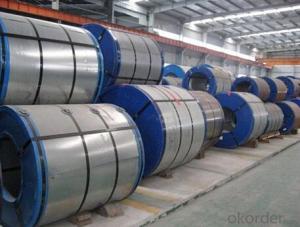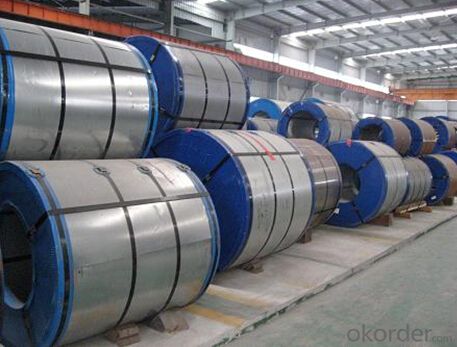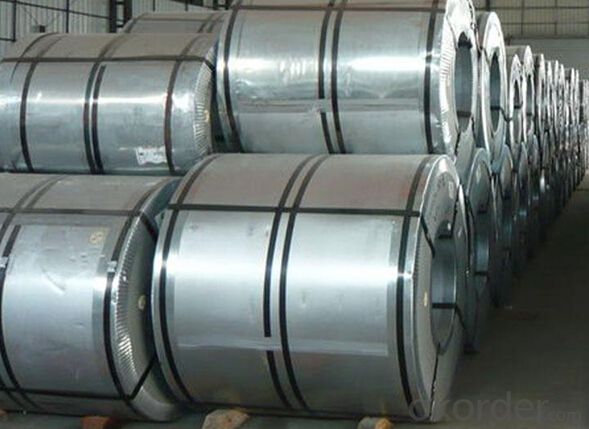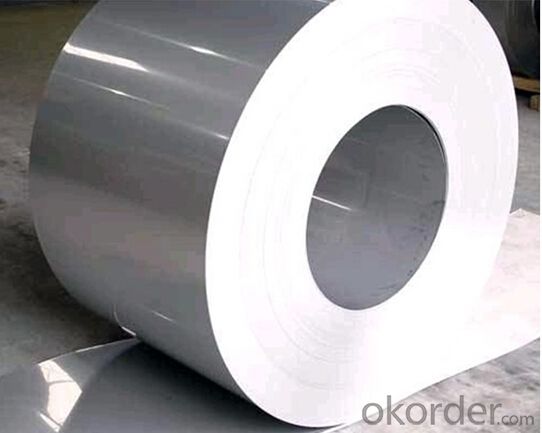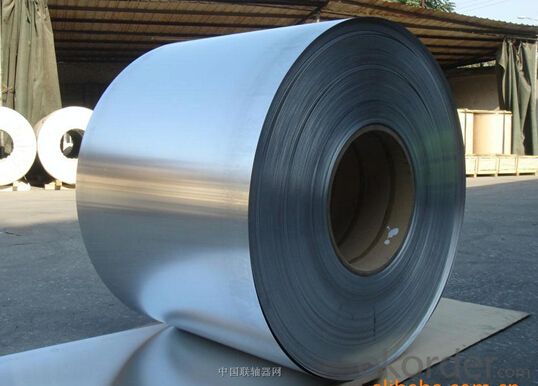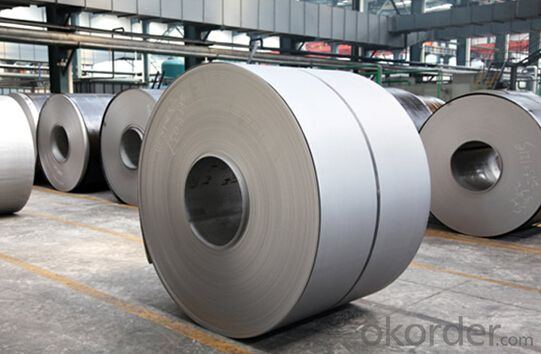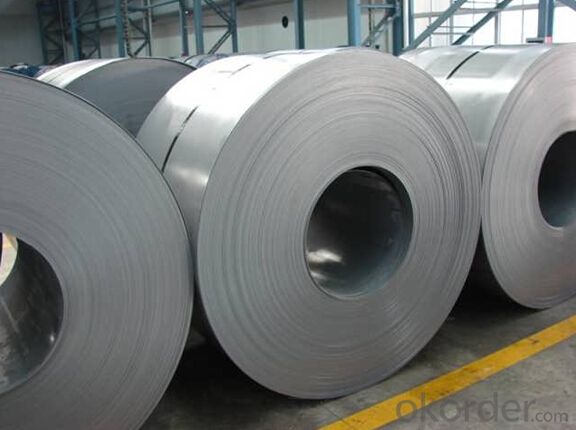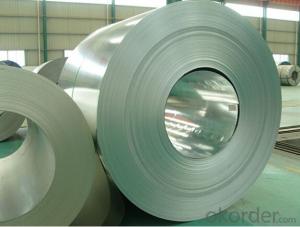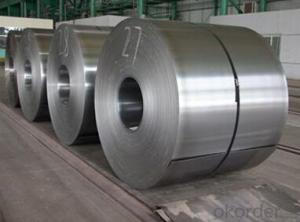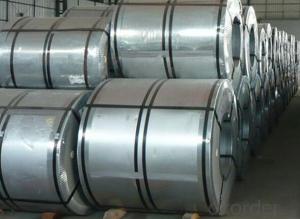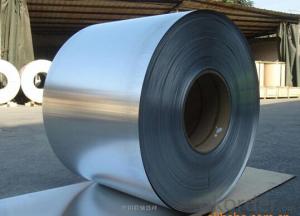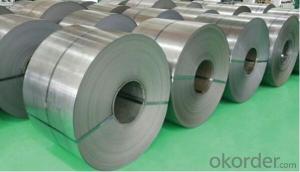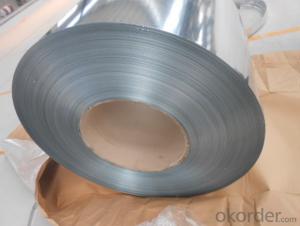Grade JIS G3322-CGLCC Galvanized Steel Coil
- Loading Port:
- Tianjin
- Payment Terms:
- TT OR LC
- Min Order Qty:
- 3 m.t.
- Supply Capability:
- 10000 m.t./month
OKorder Service Pledge
OKorder Financial Service
You Might Also Like
Specification
Grade JIS G3322-CGLCC Galvanized Steel Coil
Specification of JIS G3322-CGLCC Galvanized Steel Coil
1. Galvanized Steel Coil
(1) Width: 600-1570mm
(2) Thickness: 0.13-5.0mm
(3) Grade: JIS G3302-SGCC-SGC570, SGCH (full hard-G550), SGHC-SGH540
EN10346-DX51D+Z, DX53D+Z, S250GD-S550GD
ASTM A653-CS-B, SS255-SS550
(4) Zinc Coating: Z40g/m2~Z500g/m2 (both side total coating thickness)
2. Galvalume Steel Coil
(1) Width: 600~1500mm
(2) Thickness: 0.15~2.30mm
(3) Grade: JIS G3321-SGLCC, SGLC400-570, (G550)
EN10346-DX51D+AZ, DX53D+AZ, S250-S550
ASTM A792M CS-B, SS255-SS550
(4) AZ Coating: AZ50~AZ185g/m2
3. Prepainted Galvanized Steel Coil (PPGI)
(1) Width: 600~1250mm
(2) Thickness: 0.19~1.50mm
(3) Grade: JIS G3312-CGCC, CGC340-570, (G550)
ASTM A755M CS-B, SS255-SS550
(4) Zinc Coating: Z40g/m2~Z500g/m2 (both side total coating thickness)
4. Prepainted Galvanized Steel Coil (PPGL)
(1) Width: 600~1250mm
(2) Thickness: 0.20~1.50mm
(3) Grade: JIS G3322-CGLCC, CGLC340-570, (G550)
ASTM A755M CS-B, SS255-SS550
(4) AZ Coating: AZ50~AZ185g/m2 (both side total coating thickness)
5. Cold Rolled Steel Coil (Soft) (for further information, pls click the product name)
(1) Width: 600~1570mm
(2) Thickness: 0.13~2.50mm
(3) Grade: JIS G3141-SPCC-SD, SPCD-SD, SPEC-SD
JIS G3135-SPFC 340/390/440
EN10130-DC01, DC03, DC04
SAE1006, SAE1008
ASTM A424-TypeⅡ
6. Cold Rolled Steel Coil (Full Hard) (for further information, pls click the product name)
(1) Width: 600~1570mm
(2) Thickness: 0.13~2.50mm
(3) Grade: JIS G3141-SPCC-1B, SPCC-1D
7. Hot Rolled Steel Coil
(1) Width: 1000~1524mm
(2) Thickness: 1.20~16.5mm, other thickness can be negotiation
(3) Grade: JIS G3101-SS400, JIS G3132-SPHT1/2/3, ASTM A36, Q195, Q235 etc.
Company Introduction of the Grade JIS G3322-CGLCC Galvanized Steel Coil
CNBM International Corporation is the most import and export platform of CNBM group(China National Building Material Group Corporation) ,which is a state-owned enterprise, ranked in 270th of Fortune Global 500 in 2015.
With its advantages, CNBM International are mainly concentrate on Cement, Glass, Iron and Steel, Ceramics industries and devotes herself for supplying high quality series of refractories as well as technical consultancies and logistics solution.
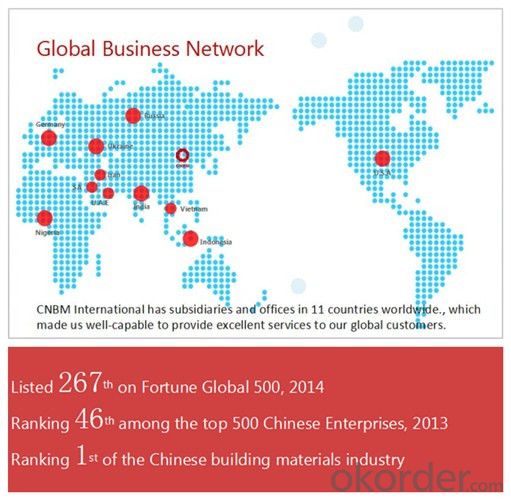
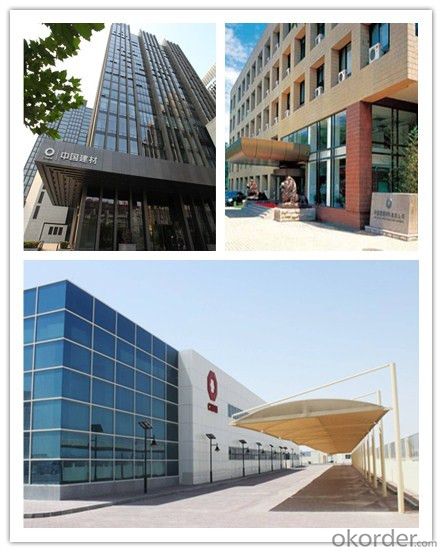
Packaging & Delivery of the Grade JIS G3322-CGLCC Galvanized Steel Coil
Packaging Detail | Sea worthy packing /as per customer's packing instruction |
Delivery Detail | 15 ~ 40 days after receiving the deposit |
Products Show:
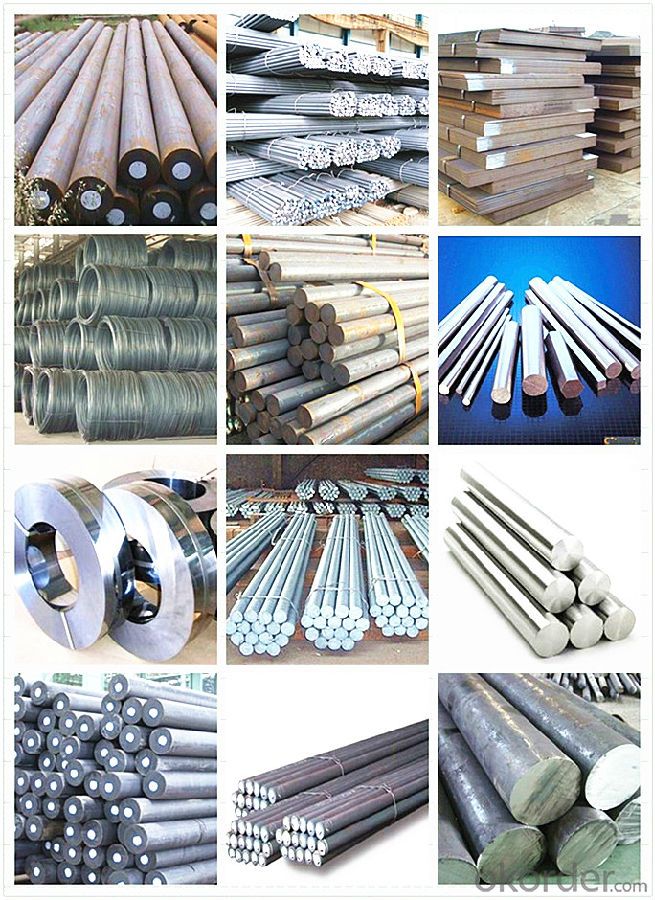
FAQ:
Are you a trading company or manufacturer? | Manufacturer |
What’s the MOQ? | 3 metric ton |
What’s your delivery time? | 15-35 days after downpayment received |
Do you Accept OEM service? | Yes |
what’s your delivery terms? | FOB/CFR/CIF |
What's the Payment Terms? | 30% as deposit,70% before shipment by T/T |
Western Union acceptable for small amount. | |
L/C acceptable for large amount. | |
Scrow ,Paybal,Alipay are also ok | |
Why choose us? | Chose happens because of quality, then price, We can give you both. Additionally, we can also offer professional products inquiry, products knowledge train (for agents), smooth goods delivery, excellent customer solution proposals. |
What's your available port of Shipment? | Main Port, China |
What’s your featured services? | Our service formula: good quality+ good price+ good service=customer's trust
|
Where are your Market? | Covering more than 160 countries in the world |
- Q: What are the applications of special steel in the oil and gas industry?
- Special steel is widely used in the oil and gas industry for various applications. It is commonly utilized in the construction of pipelines, as it possesses high strength and corrosion resistance, which ensures the safe and efficient transportation of oil and gas. Special steel is also employed in the manufacturing of drilling equipment, such as drill bits, casing, and tubing, as it can withstand extreme conditions, including high pressure and temperature. Furthermore, special steel is utilized in the fabrication of storage tanks and offshore platforms, providing durability and resistance to harsh environmental factors. Overall, the applications of special steel in the oil and gas industry contribute to the reliability and longevity of the infrastructure and equipment involved in the extraction, processing, and transportation of oil and gas.
- Q: What are the factors affecting the cost of special steel?
- There are several factors that can affect the cost of special steel. One of the main factors is the cost of raw materials. Special steel often requires specific alloys or additives that can be expensive to source. Any fluctuations in the prices of these raw materials can directly impact the cost of the final product. Another factor is the complexity of the manufacturing process. Special steel is often produced using advanced techniques and machinery, which can be costly to acquire and maintain. The more intricate and specialized the manufacturing process, the higher the cost of the steel. The demand and supply dynamics of special steel also play a role in its cost. If there is high demand for special steel but limited supply, the price is likely to increase. On the other hand, if there is low demand and excessive supply, the price may decrease. Additionally, the level of customization required for the special steel can affect its cost. If a customer needs specific dimensions, tolerances, or surface finishes, additional processing steps may be required, resulting in higher costs. Furthermore, transportation and logistics costs can impact the overall cost of special steel. If the steel needs to be transported over long distances or requires specialized handling, these additional expenses can add up. Lastly, market conditions and economic factors can influence the cost of special steel. Factors such as inflation, currency exchange rates, and overall economic stability can all impact the pricing of special steel. Overall, the cost of special steel is determined by a combination of factors including raw material costs, manufacturing complexity, demand and supply dynamics, customization requirements, transportation and logistics costs, and market conditions.
- Q: How does special steel contribute to the creep resistance of products?
- Special steel contributes to the creep resistance of products through its unique properties and composition. Creep is the gradual deformation of a material under constant stress over time, and it is a critical concern in industries that require high temperatures and prolonged usage. Special steel, also known as high-temperature steel or heat-resistant steel, is specifically designed to withstand these extreme conditions and minimize creep. One of the key factors contributing to the creep resistance of special steel is its high melting point. Special steel is typically alloyed with elements such as chromium, nickel, molybdenum, and vanadium, which significantly increase its melting point compared to ordinary steel. This enhanced heat resistance allows special steel to maintain its structural integrity and resist deformation even at elevated temperatures. Moreover, the unique microstructure of special steel plays a crucial role in its creep resistance. Special steel is engineered to have a fine-grained structure, which improves its strength and prevents the movement of dislocations within the material. Dislocations are defects in the atomic arrangement of a material that can lead to creep deformation. By minimizing the movement of dislocations, special steel exhibits higher resistance to creep and maintains its shape and dimensional stability over extended periods. In addition to its microstructure, special steel often has a higher content of certain alloying elements. For instance, the addition of elements like molybdenum and vanadium enhances the creep strength of special steel by forming stable carbides within the material. These carbides act as barriers to dislocation movement, further impeding creep deformation and improving the overall creep resistance of the product. Furthermore, special steel is often subjected to advanced heat treatment processes, such as quenching and tempering, to optimize its mechanical properties and enhance its creep resistance. These heat treatments help to refine the microstructure, improve the distribution of alloying elements, and increase the hardness and strength of the material, all of which contribute to better resistance against creep. Overall, special steel's ability to withstand high temperatures, its unique microstructure, and its alloying elements and heat treatment processes combine to provide exceptional creep resistance. This makes special steel an ideal choice for various applications that require durability and longevity under extreme thermal conditions, such as gas turbines, nuclear reactors, high-temperature boilers, and aerospace components.
- Q: How does special steel contribute to improving product quality?
- Special steel contributes to improving product quality in several ways. Firstly, special steel is known for its superior strength, durability, and resistance to corrosion, making it ideal for manufacturing high-quality products that can withstand challenging conditions and last longer. Secondly, special steel often has unique properties like high heat resistance, excellent machinability, or specific magnetic properties, which enable manufacturers to create products with enhanced performance and functionality. Moreover, special steel allows for precise and intricate designs, enabling the production of complex components with tight tolerances, resulting in improved accuracy and efficiency. Overall, the use of special steel in manufacturing processes helps to ensure that the final products are of higher quality, more reliable, and better suited to meet the needs and expectations of customers.
- Q: Can special steel be used in the electronics industry?
- Yes, special steel can be used in the electronics industry. It is often utilized for manufacturing various components and tools in electronic devices due to its desirable properties such as high strength, corrosion resistance, and thermal conductivity.
- Q: What are the different methods of surface cleaning for special steel?
- There are several different methods of surface cleaning for special steel, each with its own advantages and applications. Some of the most common methods include: 1. Mechanical Cleaning: This method involves the use of mechanical tools like wire brushes, sandpaper, or abrasive pads to physically remove dirt, rust, or other contaminants from the surface of the steel. Mechanical cleaning is effective for light to moderate surface contamination and is often used as a pre-treatment before other cleaning methods. 2. Chemical Cleaning: Chemical cleaning involves the use of specific chemicals or cleaning agents to dissolve or loosen contaminants on the surface of the special steel. These chemicals can be applied through brushing, spraying, or immersion methods. Acid-based cleaners are commonly used for removing scale, rust, or oxide deposits, while alkaline cleaners are effective for removing oils, greases, or organic residues. 3. Electrochemical Cleaning: This method utilizes electrochemical reactions to remove surface contaminants from special steel. Electrochemical cleaning involves the use of an electric current and an electrolyte solution to dissolve or dislodge dirt, rust, or other deposits. This method is particularly useful for cleaning intricate or hard-to-reach areas on the steel surface. 4. Ultrasonic Cleaning: Ultrasonic cleaning involves the use of high-frequency sound waves in a liquid medium to agitate and remove contaminants from the surface of special steel. This method is highly effective for removing fine particles, oils, greases, or other organic residues from complex or delicate surfaces. 5. High-pressure Water Jetting: High-pressure water jetting uses a focused stream of pressurized water to remove contaminants from the special steel surface. This method is particularly useful for removing heavy deposits, coatings, or paints from large areas. It can be adjusted to different pressure levels to accommodate various degrees of surface contamination. It is important to note that the choice of surface cleaning method for special steel will depend on factors such as the type and extent of contamination, the condition of the steel surface, the desired level of cleanliness, and the specific requirements of the application. It is recommended to consult with experts or professionals in the field to determine the most suitable method for a given situation.
- Q: Can special steel be used in the paper manufacturing industry?
- Yes, special steel can be used in the paper manufacturing industry. Special steels, such as stainless steel, can be used to make various components and equipment used in the paper manufacturing process. These steels offer excellent corrosion resistance, high strength, and durability, making them suitable for applications like paper machine parts, rollers, blades, and screens. Additionally, special steels can withstand high temperatures and mechanical stress, enhancing the overall efficiency and reliability of paper manufacturing operations.
- Q: What are the requirements for special steel used in high-temperature applications?
- To ensure optimal performance and durability in extreme conditions, special steel utilized in high-temperature applications, such as aerospace, power generation, and oil and gas industries, must fulfill specific criteria. Some essential requirements for this type of steel include: 1. Excellent strength and resistance to deformation at elevated temperatures are vital for maintaining structural integrity and preventing failure or deformation under extreme heat. 2. High resistance to oxidation is necessary to prevent the formation of oxides on the steel's surface, which can weaken its structure and compromise its performance. 3. Exceptional creep resistance is essential to prevent excessive deformation or failure over time caused by constant stress at high temperatures. 4. Good thermal stability allows the steel to retain its mechanical properties even after prolonged exposure to high temperatures, ensuring reliable and consistent performance. 5. In addition to oxidation, the steel must also possess good corrosion resistance to protect against various corrosive agents present in the environment, such as acids, alkalis, and salts. 6. High resistance to thermal fatigue is crucial to prevent cracking, fracturing, or failure due to repeated heating and cooling cycles. 7. Low thermal expansion minimizes dimensional changes and maintains dimensional stability under high-temperature conditions, preventing unwanted distortions or misalignments. 8. Good weldability facilitates the fabrication and joining of components, enabling the construction of complex structures and assemblies required in high-temperature environments. By meeting these requirements, special steel used in high-temperature applications can withstand extreme heat, preserve its structural integrity, and deliver reliable performance in demanding conditions.
- Q: What are some common applications of special steel?
- Special steel, known by other names such as alloy steel or tool steel, possesses unique properties that set it apart from traditional carbon steel. Its composition has been specifically tailored to enhance its performance, making it highly sought after in a wide range of industries. One prominent use for special steel is in the production of cutting tools. Drills, saws, and milling cutters, which undergo rigorous cutting and machining operations, require exceptional hardness, wear resistance, and toughness. Special steel provides these qualities, enabling the tools to maintain their sharpness and cutting efficiency over extended periods of time. The automotive industry also heavily relies on special steel. Engine components such as crankshafts, camshafts, and connecting rods necessitate high levels of strength, fatigue resistance, and heat resistance. Special steel's superior mechanical properties make it an ideal choice for these critical engine parts, ensuring both durability and optimal performance. Special steel is also extensively used in the construction of molds and dies. Injection molds, extrusion dies, and forging dies, which are vital in shaping materials for various products like plastic components, metal parts, and automotive body panels, are commonly fabricated using special steel. Its exceptional thermal conductivity, wear resistance, and toughness allow for efficient and precise shaping processes. The aerospace industry also benefits from the use of special steel. Aircraft components, including landing gears, turbine blades, and structural parts, require materials with high strength, heat resistance, and corrosion resistance. Special steel's ability to withstand the extreme conditions encountered in aviation guarantees the safety and reliability of aircraft. Furthermore, special steel plays a crucial role in the energy sector. Turbine blades for power generation, subjected to high temperatures and pressures, demand materials with excellent creep resistance and thermal stability. Special steel's ability to endure these harsh environments makes it an indispensable material in the construction of power plants. To summarize, special steel's exceptional properties make it a valuable material in various industries. Its applications span from cutting tools and automotive components to molds and dies, aerospace parts, and power generation equipment. The versatility of special steel allows for the production of high-quality, durable, and efficient products across diverse sectors.
- Q: How is special steel used in the aerospace supply chain?
- Special steel is used in the aerospace supply chain for various critical applications. It is used to manufacture components such as turbine blades, engine parts, landing gears, and structural components of aircraft. Special steel offers excellent strength, durability, and resistance to high temperatures, making it suitable for withstanding the extreme conditions faced by aerospace equipment. Its use in the aerospace supply chain helps ensure the reliability, performance, and safety of aircraft.
Send your message to us
Grade JIS G3322-CGLCC Galvanized Steel Coil
- Loading Port:
- Tianjin
- Payment Terms:
- TT OR LC
- Min Order Qty:
- 3 m.t.
- Supply Capability:
- 10000 m.t./month
OKorder Service Pledge
OKorder Financial Service
Similar products
Hot products
Hot Searches
Related keywords
